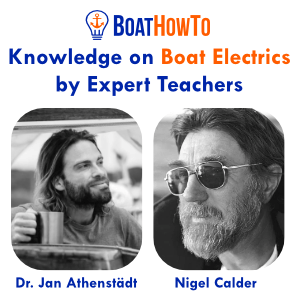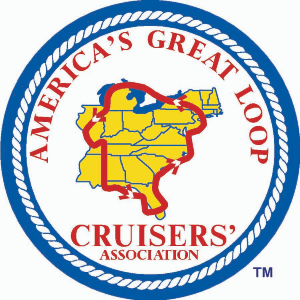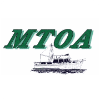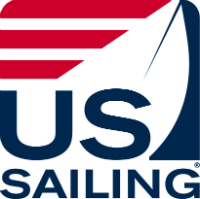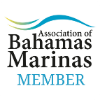
Georgia policymakers and some legislators are recognizing that implementation of the most restrictive anchoring and enforcement laws in the U.S. may have been government overreach. A coalition of boating industry representatives and organizations met with Department of Natural Resources (DNR) leadership for the second time on February 25, 2020, to further assist in their understanding of how new regulations will impact the economy and status of the state as a destination. The coalition has spent the past seven months assessing and communicating the deficiencies of the state’s passage of regulations associated with navigating the coastal waters of Georgia. Passed in 2019, House Bill 201 (HB201) rewrote the state’s code and includes:
- An unclear and ill-defined label of “live-aboard vessels”
- Requirements for Georgia’s Department of Natural Resources to designate where boats may anchor as well as where they cannot
- Conflicts with provisions of the Clean Water Act specific to management of onboard waste regulations
- Obligations for boaters and marinas to create and maintain logs of when and where vessels’ waste tanks are pumped clean
- A process for establishing permits and possible fee structure that vessels must apply for prior to anchoring
- Rolling up all the new laws into a criminal offense for non-compliance if cited and convicted
While some of these requirements have not been pursued or promulgated as required in HB201, they remain law. And an Administrative Order (AO) signed on December 30, 2019 by DNR Commissioner Mark Williams established set back provisions requiring vessels to anchor 1,000 feet from variously defined structures and 300 feet from marinas. Those distances and some of the other requirements in the AO infuriated many skippers and boat owners who use the Atlantic Intracoastal Waterway and other navigable waters along Georgia’s coast. Their comments, social media postings and letters to lawmakers in Atlanta prompted DNR to request a meeting with the boating group coalition to help them come to terms with the fallout from HB201 and understand provisions in a new measure, House Bill 833 (HB833).
Fearing defeat due to little support from legislators unfamiliar with the problems of HB201, the coalition retained the services of a respected lobbyist who has assisted in last-minute efforts to manage the introduction of HB833 while the 2020 General Assembly remains in session. Now in draft, HB833 has been championed by Representative Ron Stephens, an accomplished boater and esteemed long-term Georgia legislator. HB833 seeks to remedy the shortcomings of HB201 by providing a realignment of the state’s objectives with the routines and realities of extended cruising and recreational boating interests.
Why all the laws and rules and regulations? DNR has stated publicly that the department is attempting to rein in a few boaters whose lifestyles and choices of anchorages create conflicts with property owners on shore. DNR is also attempting to promote a healthy environment for the state’s aquaculture industry by curtailing potential discharge of waste from anchored vessels. Boating groups insist that the actions of a few bad actors does not warrant the level of oversight and regulations outlined in HB201. While an admirable environmental aim, there also is no evidence that anchored boats in Georgia waters near aquaculture areas dump, or can dump, enough waste to harm shellfish.
Following the February 25th meeting, James Newsome of Save Georgia’s Anchorages, said, “Over the course of almost two hours, we had open dialogue on the problems DNR was trying to address with HB201 as well as some of the issues the cruising community had with its incarnation as law. All parties felt the call was productive and there is agreement in principle to refine Rep. Ron Stephens’ HB833 to best achieve our mutual objectives and to push the legislation through the current session in the next few weeks. HB833, if it passes, is expected to replace most parts of HB201.”
“We are not out of the woods yet, but Georgia policymakers appear to now be responsive to changing some of the most questionable facets of the laws passed last year, including restrictions for where vessels may anchor and the identity of cruising and transient vessels. Commissioner Williams is not willing to rescind the Administrative Order signed on December 30, 2019, that prevents boats from anchoring within 1,000 feet of structures throughout the coastal region of the state, until a legislative fix, HB833, is passed by the General Assembly. We are continuing our work.”
A Call to Action
Waterway Guide attended the teleconference on February 25th, and we are optimistic about the progress of the meeting and Commissioner Williams’ attention to HB833.
Our readers’ support is needed now more than ever to assist in the funding of lobbying efforts that have helped us achieve some degree of success in having Georgia DNR and lawmakers hear our collective voice. Our fight continues in the legislature in the weeks ahead.
Thanks to all who have supported our efforts to establish the Georgia Anchoring Advocacy fund to retain Scott Draper, a proficient and proven lobbyist. We have reached 63% of our funding goal in a matter of days with your help. In less than a week Scott has come up to speed with the issues we have identified in HB201, Georgia’s anchoring law that took effect January 1st, 2020. He was able to broker a conference call with GA DNR Commissioner Mark Williams, his team, Rep. Ron Stephens and our anchoring coalition resulting in a promise from DNR to continue to work towards a solution.
Please join nearly 100 other boaters from across the country and around the world who have supported this effort. Contribute at www.greatloop.org/Georgia

